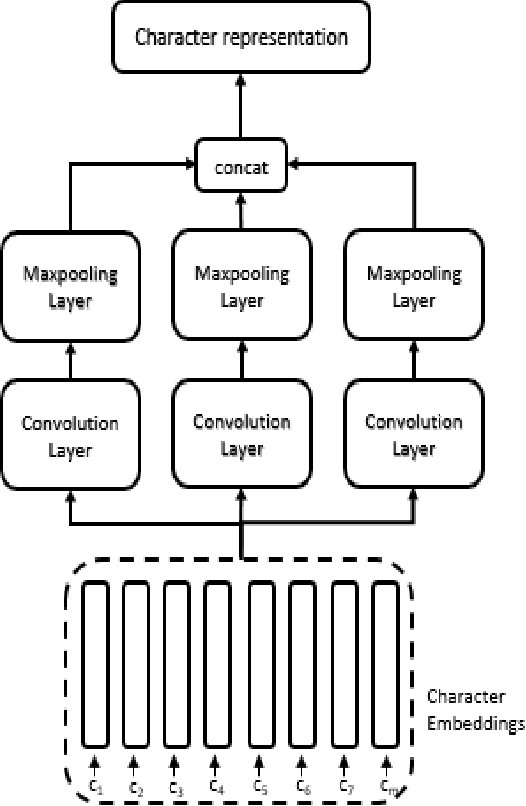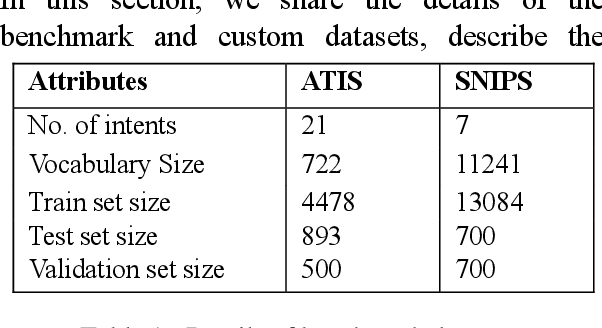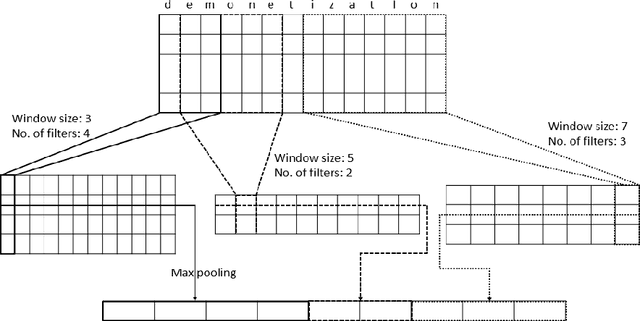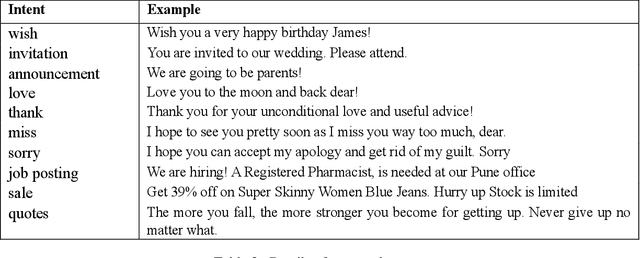A character representation enhanced on-device Intent Classification
Paper and Code
Jan 12, 2021



Intent classification is an important task in natural language understanding systems. Existing approaches have achieved perfect scores on the benchmark datasets. However they are not suitable for deployment on low-resource devices like mobiles, tablets, etc. due to their massive model size. Therefore, in this paper, we present a novel light-weight architecture for intent classification that can run efficiently on a device. We use character features to enrich the word representation. Our experiments prove that our proposed model outperforms existing approaches and achieves state-of-the-art results on benchmark datasets. We also report that our model has tiny memory footprint of ~5 MB and low inference time of ~2 milliseconds, which proves its efficiency in a resource-constrained environment.
 Add to Chrome
Add to Chrome Add to Firefox
Add to Firefox Add to Edge
Add to Edge